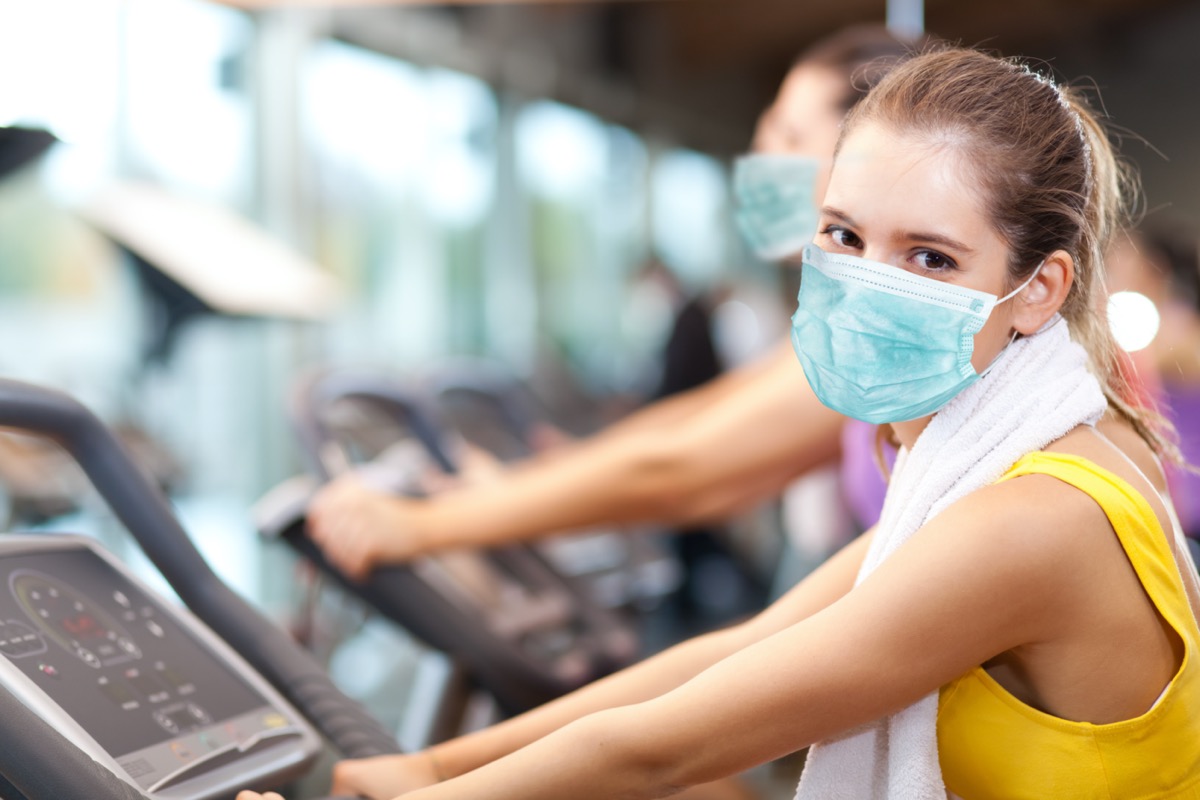The #1 Most Common Workout Myth Right Now

As COVID cases spike across the country, it's becoming increasingly important to wear a mask any time you go outside. That means that unless you've figured out an at-home fitness routine that works for you, you're going to need to cover up when you work out, even if you're not used to walking, running, strength training, or practicing yoga/pilates with your mouth and nose covered. And while yes, wearing a mask can make exercise feel harder, there's a common misconception that it's actually impeding your physical ability. Well, that's a popular myth that needs to be debunked because new research shows face masks don't actually impair your lung function.
A new study published in the Annals of the American Thoracic Society found that masks have no significant effect on how much oxygen and carbon dioxide your lungs are receiving. The study explains, "Although dyspnea may be increased and alter perceived effort with activity, the effects on [the respiratory system] imposed by face masks during physical activity are small, often too small to be detected, even during very heavy exercise."
In other words, even though it may feel like it's harder to breathe and exercise when you're wearing a mask, that's not necessarily the case. And the effect isn't significant enough to use as an excuse to not be active. (Related: 9 Restaurant Chains That Closed Hundreds of Locations This Summer.)
"Wearing a face mask can be uncomfortable," the study's lead author, Susan Hopkins, M.D., Ph.D., admitted to the UC San Diego Health Newsroom. "…But these are sensory perceptions. They do not impact cardiopulmonary function in healthy people. So while dyspnea might be increased with a mask, you have to weigh that against the reduced risk of contracting COVID-19, knowing that the physiology is essentially unchanged."
Translated bluntly, the risks of not wearing a mask right now are much greater than wearing a mask while working out.
There is one important caveat here, though: For people who have severe heart or lung conditions, the minor changes in blood gases that come from wearing a mask while exercising do actually affect your physical capacity. Unfortunately, your pre-existing condition also means you're at increased risk of contracting a severe case of coronavirus. So, wearing a mask while being active is something you should discuss with a health professional.
"These individuals might feel too uncomfortable to exercise, and that should be discussed with their doctor," Dr. Hopkins says. "However, the fact that these individuals are at great risk should they contract COVID-19 must also be considered."
If you don't have a pre-existing condition, exercising in public places without a mask on is just one of the ways you could be endangering yourself and the people around you. Make sure you wear one, and don't use the uncomfortableness as an excuse to not get your daily exercise session in. To get motivated, here are 18 simple workout moves that torch calories all day.
For more healthy tips to follow during these tough times, make sure to sign up for our newsletter.








